Are you curious about exploring iOS without owning an iPhone? Then you might want to try an iOS emulator on your PC or Mac. These software tools allow you to replicate the iOS environment on your Windows PC or Mac, offering a seamless way to test apps, play iOS-exclusive games, or experience Apple’s ecosystem without an actual iPhone or iPad. Keep reading below to learn more and check out our pick of the best iOS emulators worth trying.
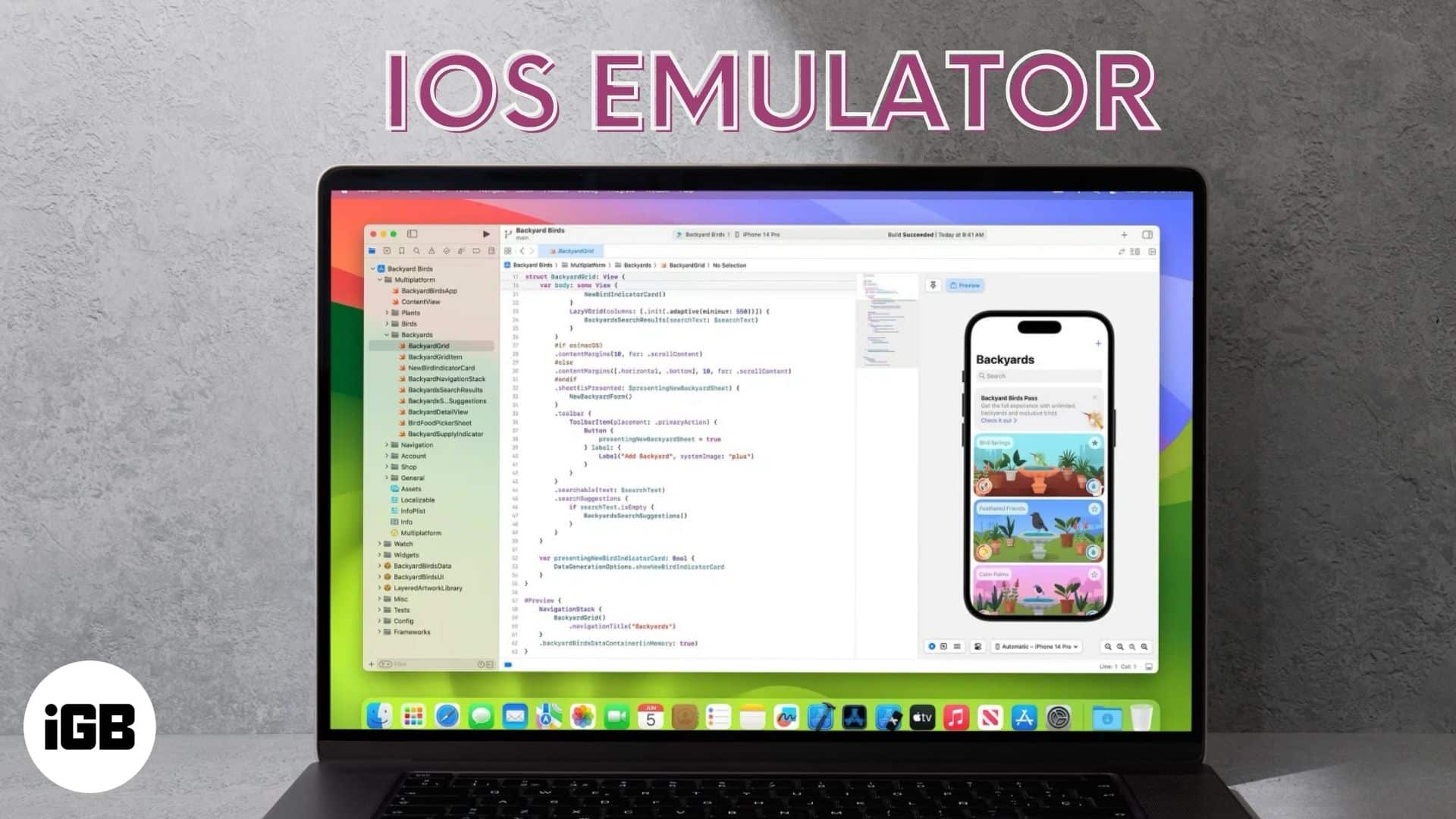
What are iOS Emulators for Mac and Windows PC?
iOS emulators are software or apps that allow you to simulate the iOS environment on devices such as Macs or Windows PCs.
iOS emulators allow users to run iOS apps, test development projects, and explore the Apple ecosystem without needing an actual iPhone or iPad.
They are particularly useful for developers who want to test their apps across different devices and iOS versions, as well as for gamers or enthusiasts who want to experience iOS-exclusive apps on a bigger screen.
Key Features of iOS Emulators:
- Access to iOS Apps: You can download and use iOS apps on an emulator directly from the App Store or through sideloading.
- Cross-Platform Compatibility: iOS emulators can run iOS apps on Windows, Mac, or other devices.
- App Testing: iOS emulators allow developers to test iOS apps without the need for a physical iPhone or iPad.
Pros of iOS Emulators:
- Cost-Effective: There’s no need to purchase multiple Apple devices for app testing.
- Convenience: Test apps or play games on a larger screen with easy navigation.
- Accessibility: Enables non-iOS users to experience iOS-exclusive features.
- Multiple iOS Versions: Test apps on different iOS versions for compatibility.
- Educational: Emulators can be helpful in learning iOS development or studying the iOS operating system.
- Gaming: Some gamers use emulators to play iOS games on their computers or other devices, often for convenience or to access older games that are no longer available in the App Store.
Cons of iOS Emulators:
- Performance Limitations: Emulators may not fully replicate the performance of physical devices, especially for high-end apps.
- Restricted Features: Some iOS functionalities, such as Face ID or Apple Pay, may not work.
- System Resource Demands: Running emulators can consume significant CPU and RAM, potentially slowing down your system.
- Legal and Ethical Concerns: Using iOS emulators may raise copyright or licensing issues depending on the software source. It can also violate Apple’s terms of service and could be used for unauthorized purposes.
- Security Risks: Emulators may potentially expose your computer to security risks, such as malware or viruses.
Why use iOS Emulators?
iOS emulators offer a wide range of uses, making them helpful tools for developers, gamers, and tech enthusiasts. Here are the key reasons to use an iOS emulator for PC or other devices:
- App Development and Testing: Test and debug iOS apps on multiple virtual devices without needing physical hardware, saving time and resources.
- Convenience for Developers: Experiment with different iOS versions and device configurations to ensure app compatibility across a variety of platforms.
- Access to iOS Apps on Non-iOS Devices: Run iOS-exclusive apps and games on Windows PCs or Macs, giving non-Apple users access to the Apple ecosystem.
- Cost Efficiency: Avoid the expense of purchasing multiple Apple devices for testing or personal use.
- Educational Purposes: Learn and experiment with iOS app development without investing in Apple hardware upfront.
- Gaming: You can use emulators to play iOS games on the bigger screen of your PC or Mac for enhanced visibility and better control. If you’re looking specifically for a gaming emulator, try the Delta emulator on iPhone.
Who needs iPhone Emulators?
Considering the uses described above, the main groups that may need iOS emulators are listed below.
- Software Developers: To develop and test iOS apps without needing to own a physical iOS device like an iPhone or iPad.
- Educational Institutions: This is for teaching about the iOS operating system and iOS app development.
- Gamers: To play iOS games on their computers or even to access older games that are no longer available in the App Store.
- Individuals who don’t have an Apple device: To experience iOS apps without needing to own an iPhone or iPad.
How to choose the best iOS Emulator for Mac and Windows PC?
If you want to select the best iOS emulator for your PC or Mac, it’s essential to consider the following key factors:
- Device Compatibility: First, make sure the iOS emulator you’re selecting is compatible with the device you will run it on, such as your PC or Mac. Check that it works with the operating system and version running on your device.
- App Compatibility: Next, it is equally important to check that the emulator you select is compatible with the particular app or game you intend to develop or use.
- Performance Requirements: Select an emulator optimized for performance, especially if you plan to use resource-heavy apps or games. Check reviews to ensure the emulator doesn’t cause significant system slowdowns.
- User Interface: Opt for an emulator with a clean and streamlined user interface for ease of use.
- Features and Customization: Look for essential features like screen resolution adjustments, support for multiple device configurations, and iOS version emulation. Developers should prioritize emulators with tools for debugging, testing, and integration with development environments like Xcode.
- Cost and Licensing: Some emulators are free, while others require a subscription or one-time payment. Consider your budget and the value the emulator provides. Also, verify that the emulator is legal and licensed to avoid potential copyright issues.
How we chose and tested the best iOS emulators
When compiling our list of the best iOS emulators, we followed rigorous selection criteria and testing processes, as explained below.
Selection Criteria:
The emulators we’ve shortlisted meet the following criteria:
- Compatibility: We focused on iOS emulators that are compatible with the latest Windows and Mac operating systems.
- Performance: We ensured that the iOS emulators delivered reliable and smooth performance with quick loading times and overall responsiveness.
- Features: We only chose emulators that offered comprehensive features like customization options (resolution, controls), integration with development tools, and extras like screen recording.
- Ease of Use: We prioritized the emulators that were most user-friendly and intuitive with straightforward installation processes. So, they are easily accessible even if you’re not very tech-savvy.
- Legality and Ethics: We’ve picked emulators that are licensed and well-known. Beware that using emulators can violate Apple’s terms of service in some cases. Always use emulators only for legitimate purposes like development and testing.
Testing Methodology:
We followed the steps below to test out the emulators to ensure they work well and live up to the claims made.
- Installation and setup: We downloaded the emulators on both Windows PC and Mac to assess the ease of downloading, installing, and configuring each emulator.
- Performance benchmarks: We measured startup times, responsiveness, and overall stability under different workloads. We also tested for lag and crashes during app usage and gameplay.
- Explore Features: We tested all the advertised features of each emulator to check if they worked as intended.
- App testing: Lastly, we tested a mix of iOS apps on the emulator, including games, productivity tools, and custom apps, for functionality and performance.
8 Best iOS Emulators to run apps on Windows and Mac
Based on the extensive testing described above, our top recommendations for iOS emulators are below.
1. iPadian (Windows and Mac)
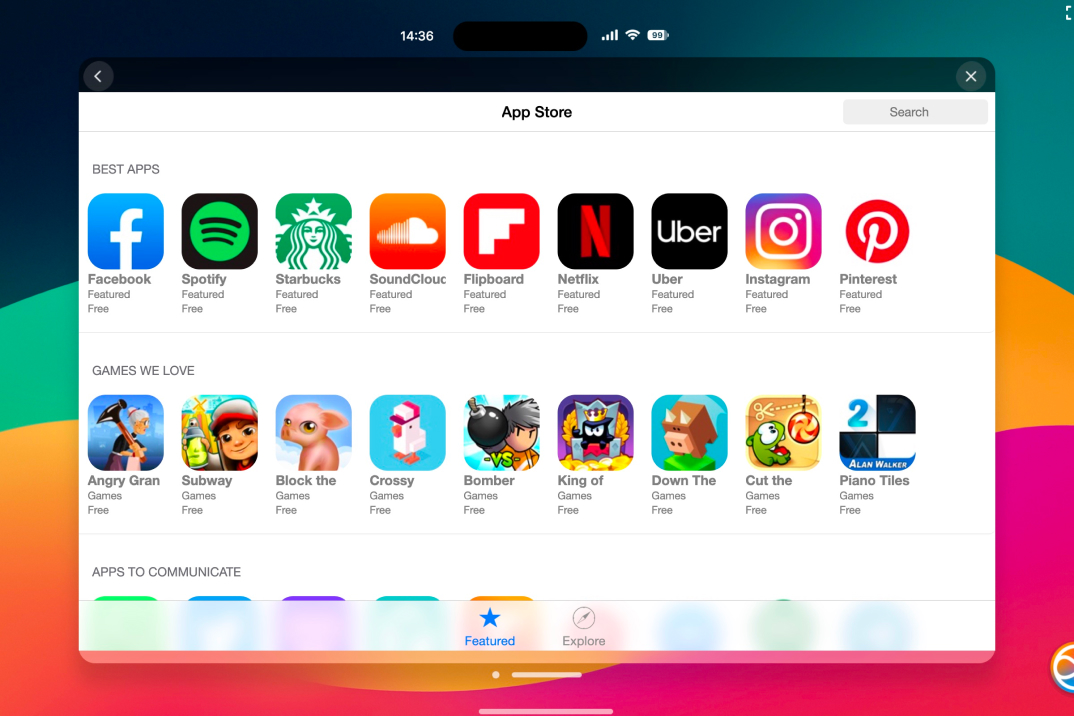
Our top recommendation is well-suited for casual users who want to experience the iOS interface on a PC or Mac.
This iOS simulator for Windows and Mac is incredibly beginner-friendly and is not meant for advanced users like developers.
While it’s not suitable for app development or advanced testing, it’s a great choice for those who want to explore iOS-like functionalities or play iOS-inspired games on a larger screen. The emulator is a one-time purchase, making it an affordable option for casual use.
Price: $25.00
Current offer: $9.99
2. Appetize.io (Cloud-based)

This one’s a cloud-based iOS emulator that enables you to run iOS apps directly from a web browser without needing to install any software. This makes it a convenient and lightweight option for developers and businesses looking to test, demo, or distribute apps. It supports a wide range of iOS versions and devices, making it a versatile choice for compatibility testing.
Appetize.io is particularly valuable for teams collaborating on app development, as it allows easy sharing of app links for live testing. The basic version is free but quite limited. You need to get a monthly subscription to unlock its full functionality.
Price: Starts at $59.00 per month
3. LambdaTest (Cloud-based)
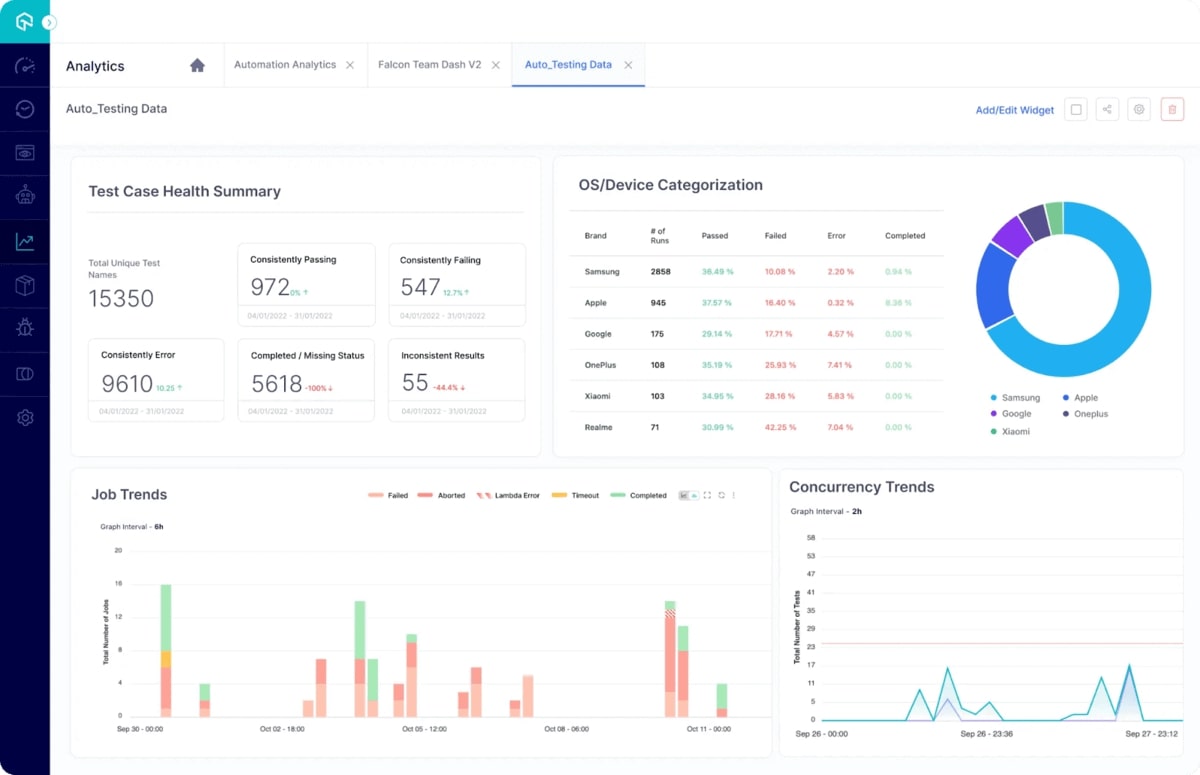
Next on our list is this cloud-based testing platform which includes a powerful iOS emulator. LambdaTest allows you to test iOS apps and websites on a variety of virtual devices across different iOS versions.
It’s a great choice for developers and QA teams due to its seamless integration with CI/CD pipelines and collaboration tools. It also offers features like geolocation testing, debugging tools, and live testing environments.
While the platform is feature-rich, its pricing starts at $15 per month for basic access, with more advanced plans available for larger teams and enterprise needs.
There’s a free version, but you need to pay for a subscription to get full access to its features.
Price: Starts at $15.00 per month
4. Smartface (Windows and Mac)
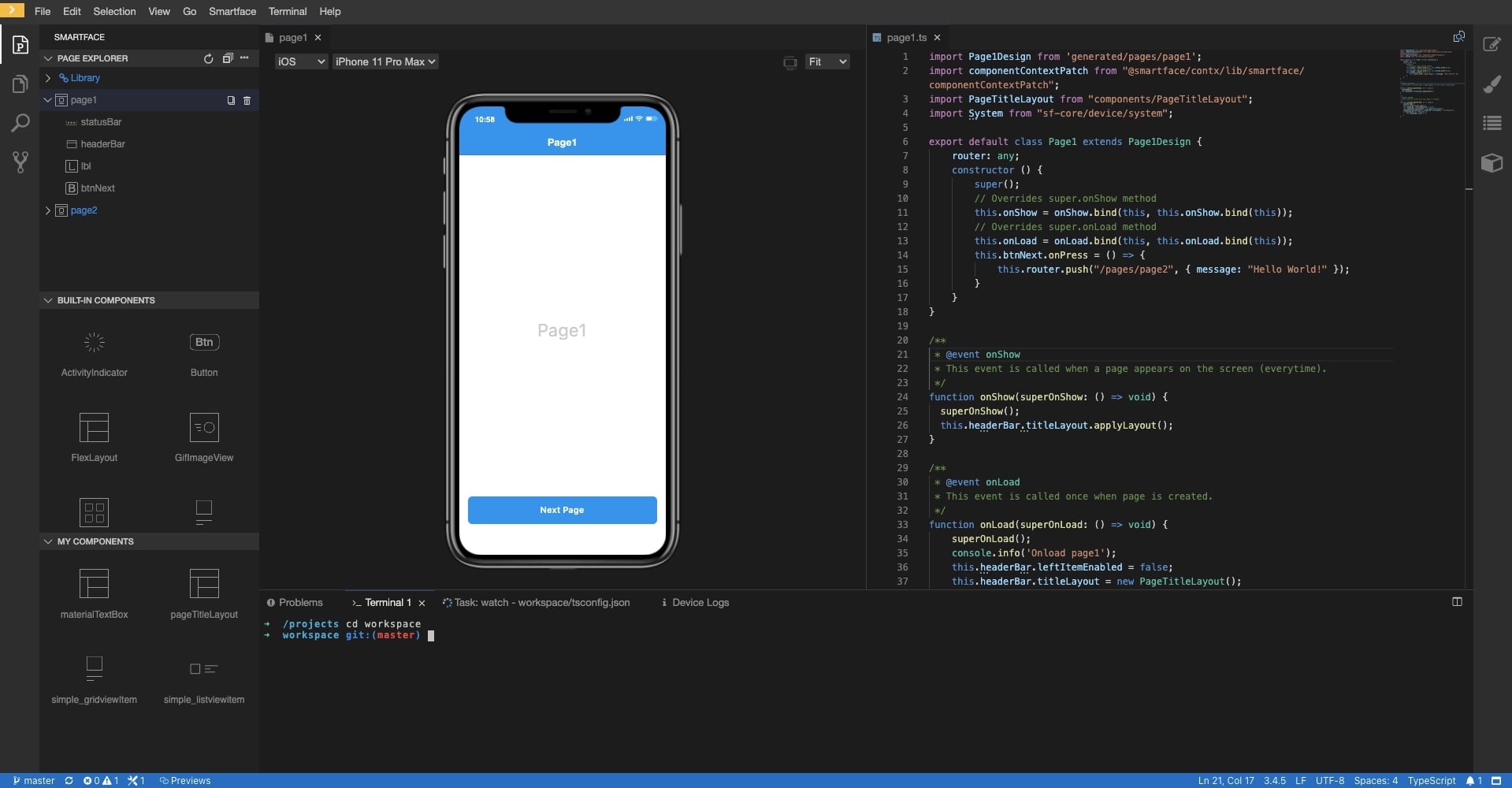
Smartface is a robust iOS emulator designed primarily for developers and enterprises. It’s well-suited for app development and testing. It supports cross-platform testing, allowing developers to create and debug iOS and Android apps within a single environment.
Smartface offers advanced features like on-device debugging, real-time code changes, and responsive design testing, which makes it one of the best iOS emulators for professional app development. It’s particularly suited for large-scale projects that require seamless performance across multiple devices and operating systems.
Smartface does not disclose pricing upfront, and you need to contact the company to get a quote for your specific needs.
Price: Varies
5. Xcode (Mac only)
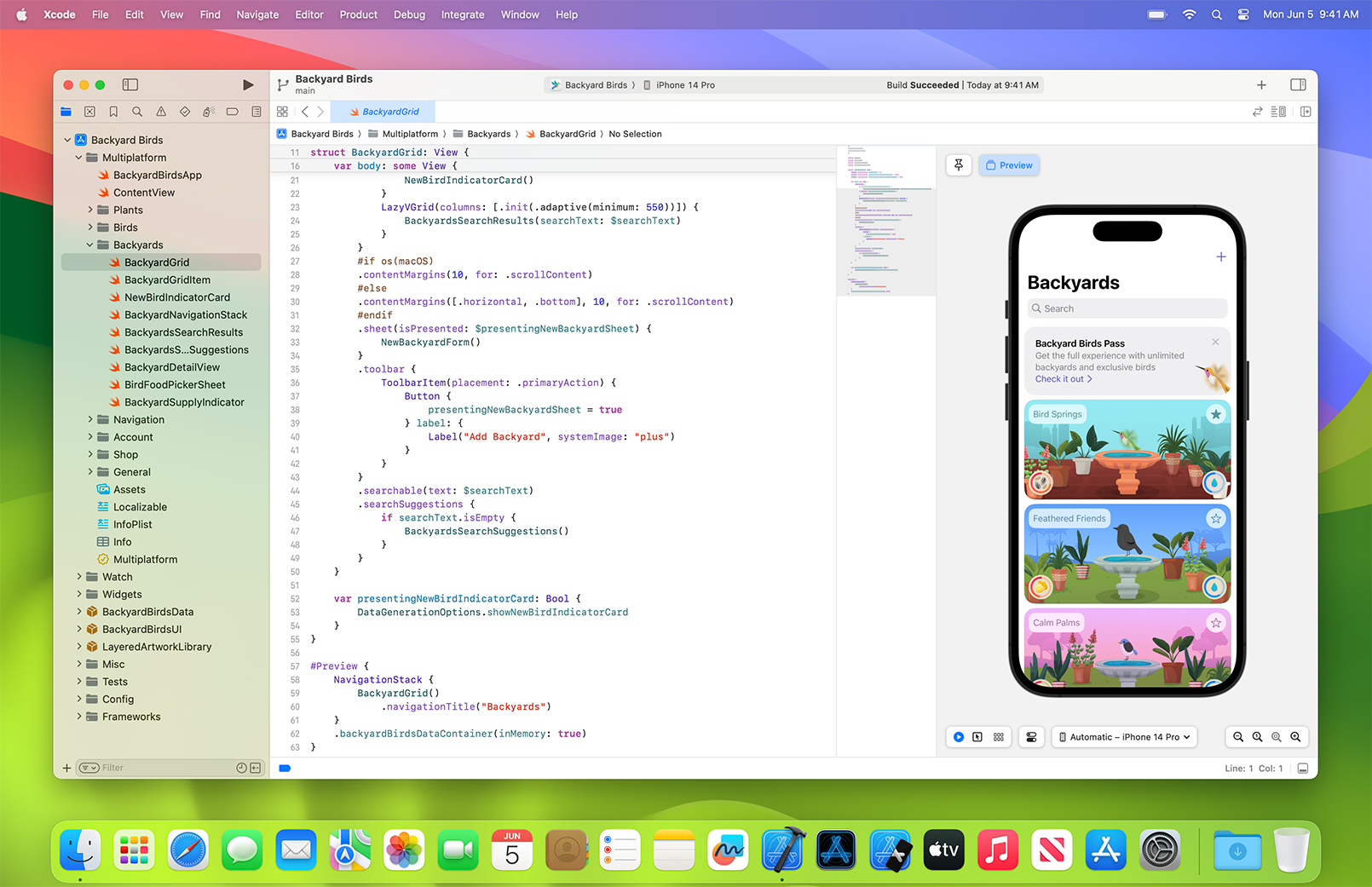
Xcode is Apple’s official integrated development environment (IDE) for macOS. It’s the best iOS emulator for macOS as it allows users to test iOS apps on virtual devices, including iPhones, iPads, and Apple Watches, running various iOS versions.
It is an essential tool for developers creating apps for Apple’s ecosystem, offering advanced debugging, performance analysis, and integration with other Apple tools like Swift and TestFlight.
We found that Xcode provides an accurate and reliable testing environment, ensuring apps function seamlessly across different devices. Best of all, Xcode is completely free to download and use, although it requires a macOS system and an Apple Developer account.
Price: Free
6. .NET MAUI (Windows only)
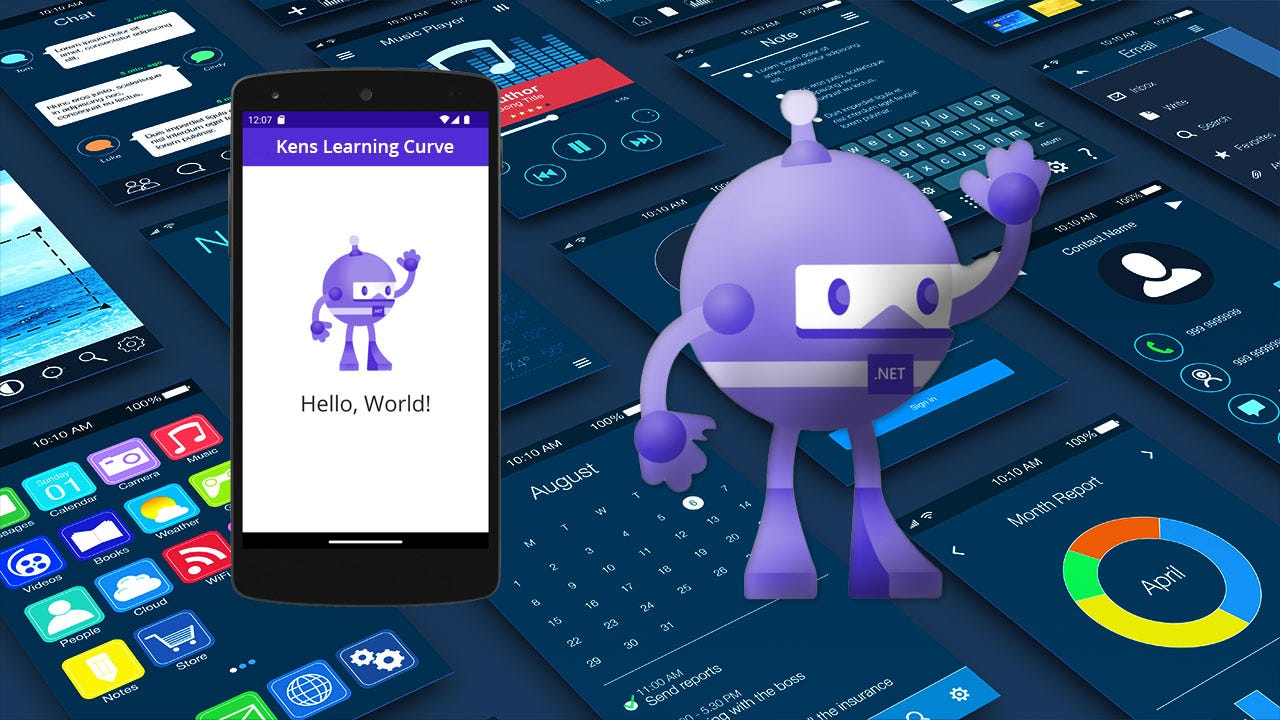
The .NET MAUI (Multi-platform App UI) emulator is perhaps the best iPhone emulator for PC because it is installed automatically as part of the .NET Multi-platform App UI development workload in Microsoft Visual Studio 2022. This streamlines the development workflow, making it easier to iterate and troubleshoot.
.NET MAUI is the replacement for Xamarin, which was a popular iOS emulator for Windows but has now been discontinued.
This tool enables developers to test and debug their applications on virtual devices that mimic the behavior of real hardware. It provides a realistic simulation of iPhone features, including gestures, screen resolutions, and hardware capabilities.
Overall, the .NET MAUI emulator is essential for efficient and effective app development, ensuring a consistent user experience across platforms. The best part is that it is open-source and free to use.
Price: Free
7. Corellium (Cloud-based)
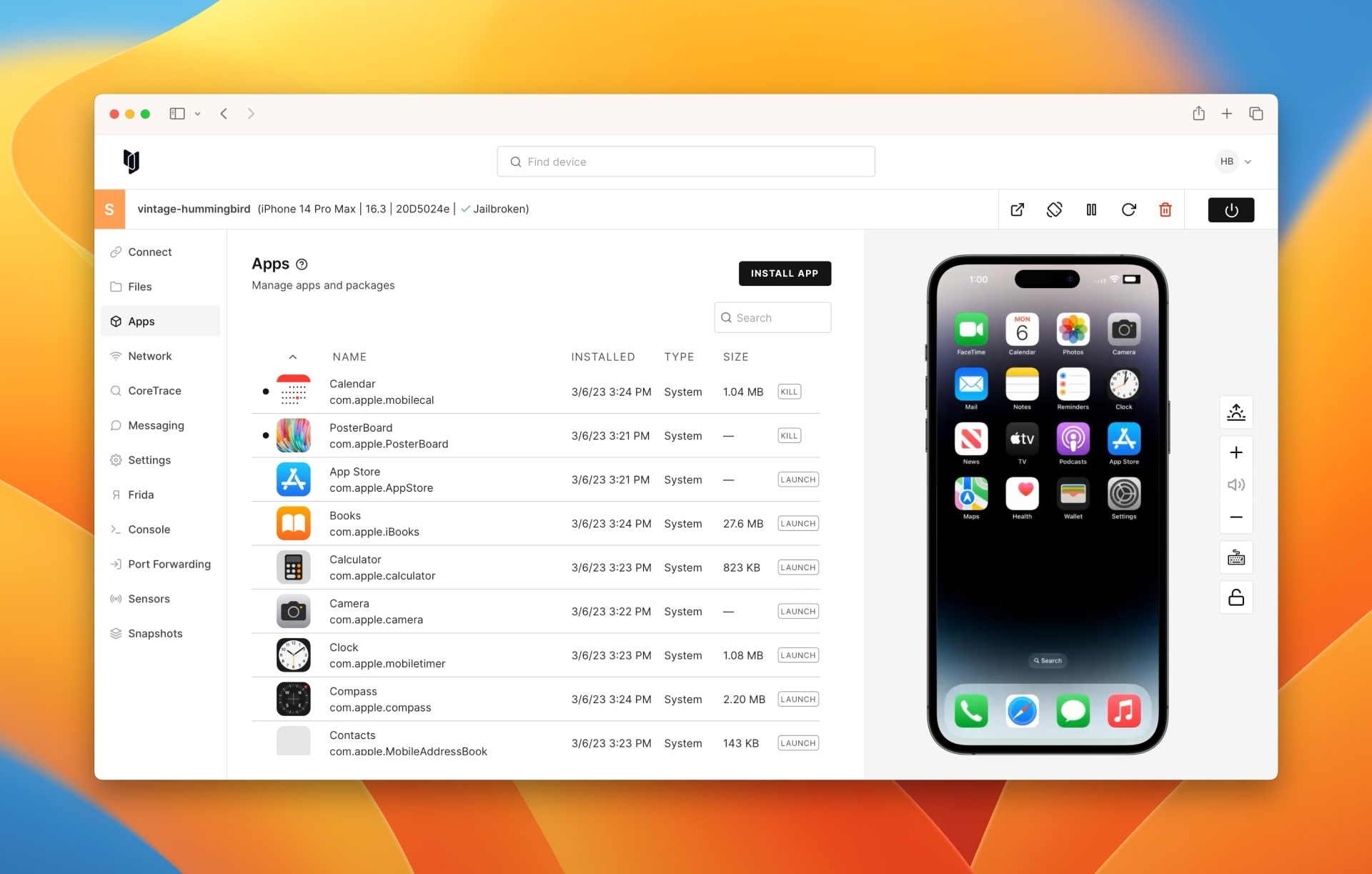
Next up is a cloud-based iOS emulator that’s ideal for developers and enterprises. It offers virtualized iOS devices that allow you to test apps, analyze security vulnerabilities, and conduct advanced debugging in a highly controlled environment.
Corellium is especially popular for its ability to simulate jailbroken devices, making it a valuable tool for security testing and exploring system-level behaviors. Features include automated testing, device snapshotting, and seamless API integrations.
As for the pricing, it is customized based on your needs. So, you need to contact Corellium for a quote.
Price: Varies
8. TestSigma (Cloud-based)
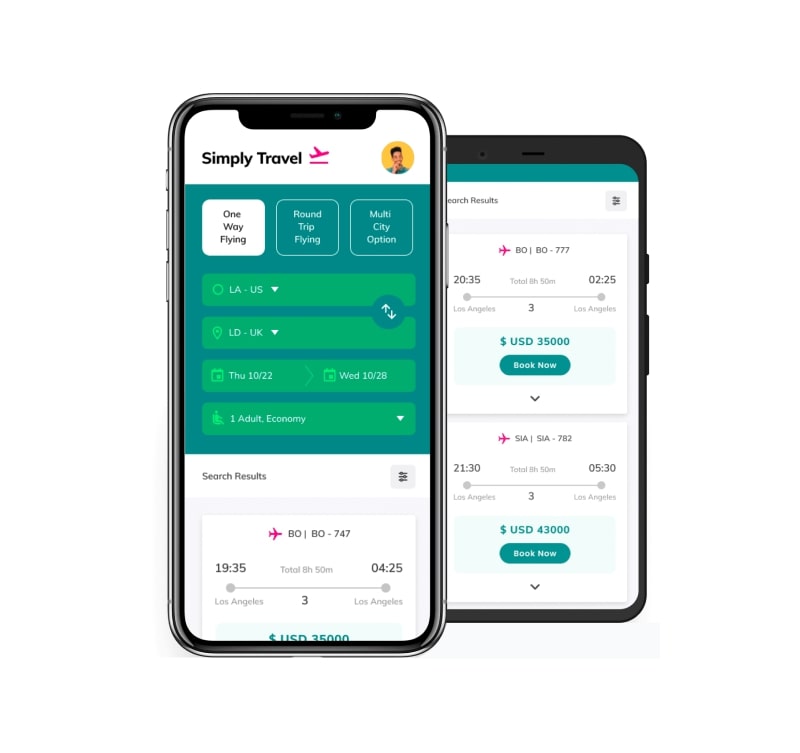
Testsigma is a cloud-based test automation platform that includes iOS emulation capabilities. It is a simple yet effective tool for mobile app testing for developers and QA teams.
You can use it to test iOS applications across multiple virtual devices and iOS versions without needing physical hardware. Testsigma stands out for its no-code automation feature, allowing you to create, execute, and manage test cases with minimal technical expertise.
Moreover, it integrates seamlessly with CI/CD pipelines and supports parallel testing, making it an excellent choice for agile development workflows. You need to contact TestSigma to get a quote for pricing plans.
Price: Varies
Signing off…
I hope this guide has helped you pick the best iOS emulator for your needs. If you need more help, let me know in the comments below. You might also want to try out an Android emulator or a Windows emulator for your Mac.
You might also like:

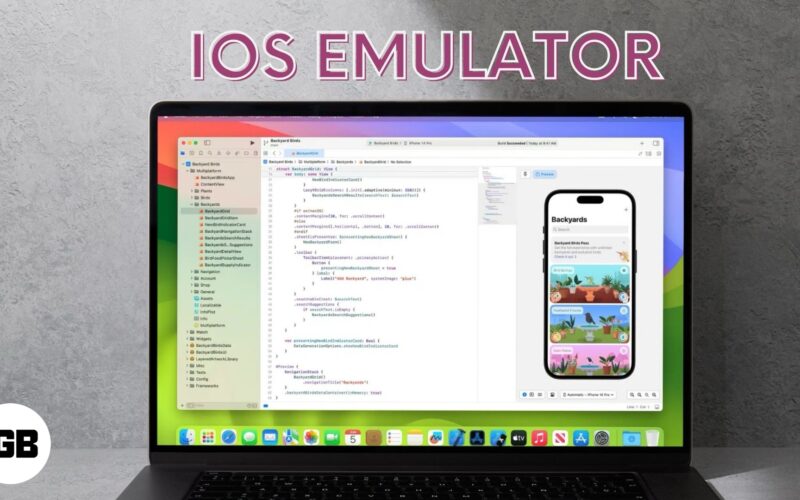

Great post! I’m really impressed with the detailed comparison of the iOS emulators here. It’s helpful to see the pros and cons laid out so clearly. I’m especially interested in trying out Appetize.io for testing my apps. Thanks for the recommendations!
Great post! I’ve been looking for a reliable iOS emulator for my Windows PC, and your recommendations are super helpful. Can’t wait to try out the options you mentioned! Thanks for the detailed insights!